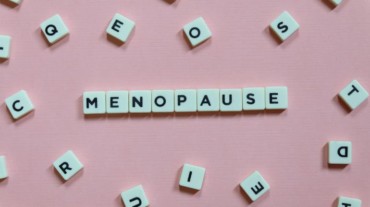
For many women, menopause is a difficult and excruciating period. It is usually followed by a slew of undesirable symptoms such as hot flushes, mood swings and sleeping problems.While fertility declines during perimenopause, women are not completely protected from an unintended pregnancy until they enter menopause, which is described as a ‘period-free period’ of 12 months. Therefore, you could get pregnant even though you have not had a period in a few months.
The bottom line is that before menopause is verified, you must use an accurate, discreet, and suitable form of birth control.
According to the National Institute of Health, menopause is described as
Also, Read: Adopt these 6 habits in your 40s to sail through menopause
The terms “menopause” and “perimenopause” (which is a few months to years preceding menopause) are often interchanged.
Perimenopause is the period during which the reproductive hormones begin to drop. Periods may continue throughout this phase, but they might become intermittent (i.e. a period may not occur every month). So, this translates into less flow and for a lesser number of days. While some women report feeling fine during perimenopause, for others, symptoms may appear. Do note that while menopause is a ‘period-free period’ of about 12 months, post menopause is the period 12 months after established menopause. So, it is always a good idea to seek medical advice if you find unusual changes in your body.

Women may get pregnant during perimenopause despite decrease in fertility. Even if the menstrual cycle is less regular, the body could be producing eggs. Hence, women who want to continue using birth control pills should do so under medical supervision for avoiding pregnancy. Otherwise, they may opt for alternative methods of contraception, such as :
It is always better to switch over to alternative contraception methods during perimenopause. Women should always consult their doctor if they are planning to continue the birth control pill and although many women find hormonal birth control pills convenient to use, it can increase the risk of blood clots in certain women. The risk increases in women who are in their late forties, have a history of blood pressure, heart disease, diabetes, cancer (either in their family or personally) and are smokers.

Low-dose birth control can be used to avoid pregnancy as well as to relieve perimenopausal symptoms. Progesterone only pill for birth control is generally recommended as it has low risk of clot development. It may, on the other hand, increase risk of osteoporosis, irregular periods and breast cancer.
Menopause begins at the age of 51 on an average. If the individual is using hormonal birth control, it may be difficult to determine the exact time of menopause. For this reason, some women opt to stop using birth control pills once they begin to experience perimenopausal symptoms. Some blood tests for hormones and TVS (to check the size of ovaries, uterus, and inner lining of uterus) are done to confirm the menopause.
Select Topics of your interest and let us customize your feed.
PERSONALISE NOWAlthough menopause may appear to be a frightening prospect, it is a normal part of life for all women. Thankfully, there are a few approaches that can be used to make the menopause occur smoothly. If you are facing menopause and there are questions you feel are unanswered, please seek a gynaecological consultation.